Improving Productivity within Community Care Organisations with the Help of 6S
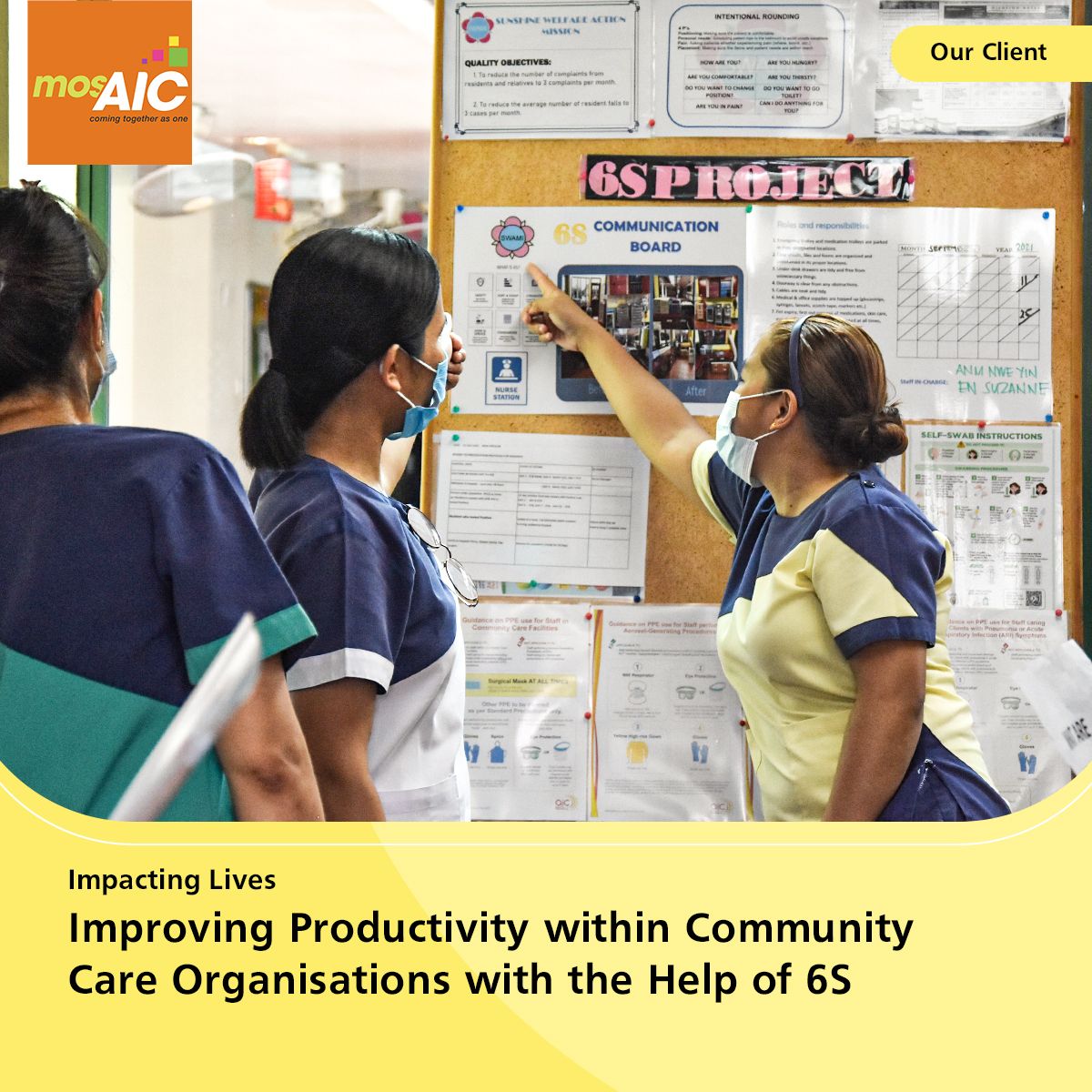
In an effort to enhance the quality of care and productivity within the healthcare sector, our Community Care partners are always on a mission to further improve the well-being and services for seniors in the community. mosAIC explores how more organisations are now able to better the lives of seniors in the long-term care sector with advancements in the efficiency and quality of clinical care.
Studies have shown that working professionals in Singapore spend only 60% of their time on their main work duties, compared with a global average of 72%. The rest of their work time is spent on doing administrative or repetitive tasks. In an effort to improve workflow and increase productivity in their work environment, Community Care organisations, Sunshine Welfare Action Mission (SWAMI) and Wan Min Community Services (WMCS), made the decision to attend the 6S Training and Improvement Workshop held by the Agency for Integrated Care (AIC) Singapore.
Improving Productivity with 6S
6S is a project initiative for Community Care organisations to improve the process and workflow of their workplace. Through this project, SWAMI and WMCS aim to equip staff with the basic knowledge of lean methodology, workplace organisation and visual management.
The 6S processes that help improve productivity are as follows:
- Safety - Identify and fix unsafe conditions
- Sort and Scrap - Categorise and eliminate what is unnecessary
- Straighten - Organise a place for everything
- Shine and Service - Keep a clean environment, report and service any faulty equipment
- Standardise - Implement a standard operating procedure
- Sustain - Maintain improvements and adapt system into organisational culture with self-discipline
Upon the implementation of 6S as an organisation tool, the workspace would be clutter-free and easily accessible. This conducive and safe working environment will lead to an improvement in manpower efficiency, team morale communication, and better use of supplies and equipment.
Challenges Faced with Clutter
Prior to the 6S workshop, the staff at SWAMI would spend a lot of time and effort locating items in the linen and nursing rooms, as work stations were disorganised. This resulted in longer time needed to complete tasks, such as retrieving an item from the drawers and shelves, as they were sometimes difficult to access. SWAMI also wanted to improve the overall layout of the room, including securing the loose cables at the doorway for safety reasons, and preventing the supply trolley from being an obstacle.
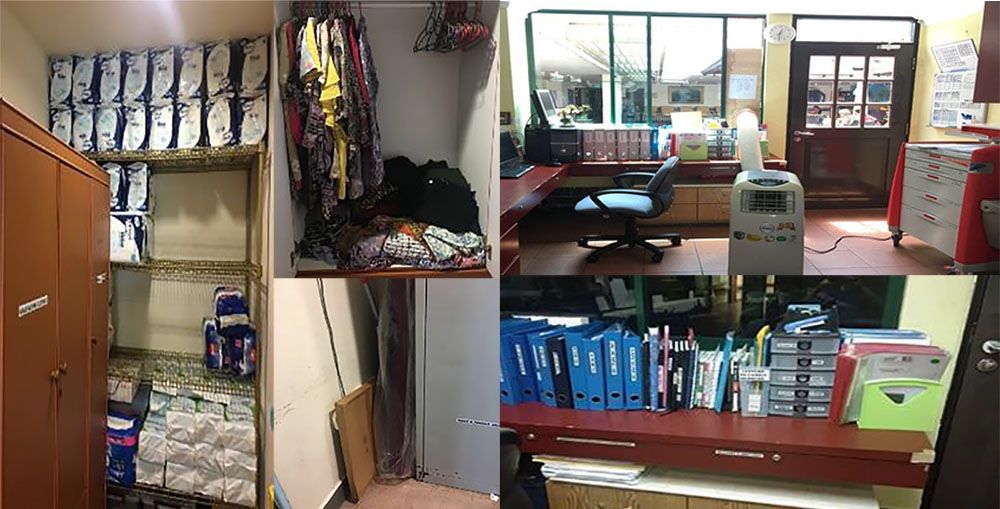
WMCS faced a similar situation with its work environment before attending the 6S workshop. Two of its storage rooms had disorganised shelves and heavy items stored overhead. This posed a safety risk as it was difficult to arrange or move heavy items from a high place. Aside from disorganised shelves, clutter on the floor space in front of the shelving unit made the lower shelves inaccessible which, in turn, hindered efficiency. The work area lacked proper labelling for important items, and regularly maintained areas had no visual reminders for staff to reference from.
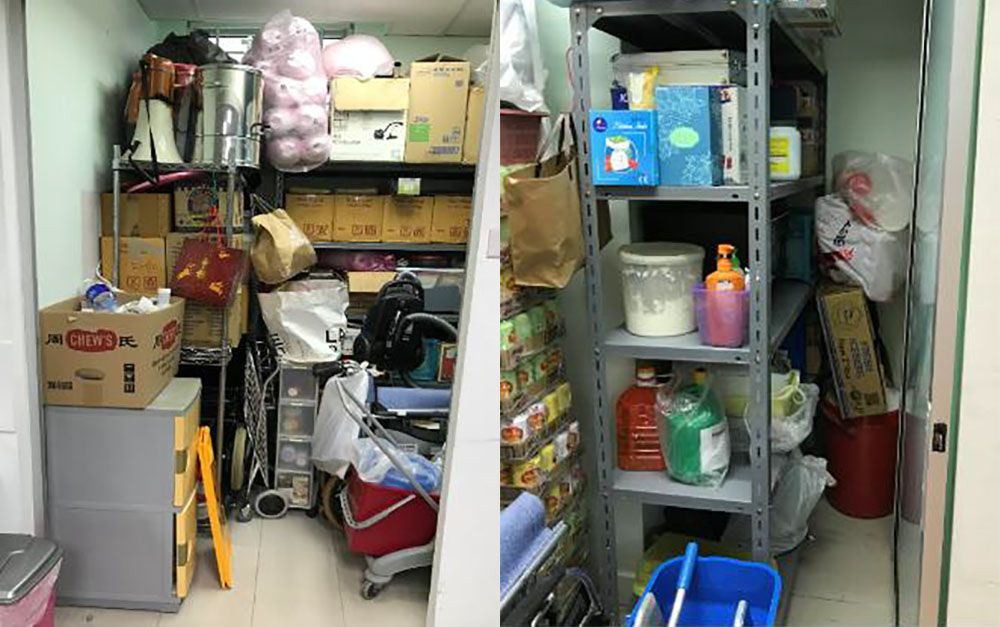
Issues with safety and the disorganised space made it difficult for both organisations to work productively. This led SWAMI and WMCS to attend the 6S Training and Improvement Workshop, where both organisations had to apply the 6S methods learnt on the areas identified for improvement.
How 6S Came Through
Since implementing the concepts learnt from the workshop, SWAMI has received feedback from the staff on the improved workplace efficiency and their assessment checklist confirms this, moving from an initial score of 13% and 17% to 88% and 89% at the linen and nursing rooms respectively. Though faced with challenges during this project, the nursing team was satisfied with the results as the implementation process improved morale and strengthened teamwork. After the completion of the project, SWAMI successfully reduced motion waste — or unnecessary movement of staff or items in a workspace — as well as risk of accidents and miscommunication among staff.
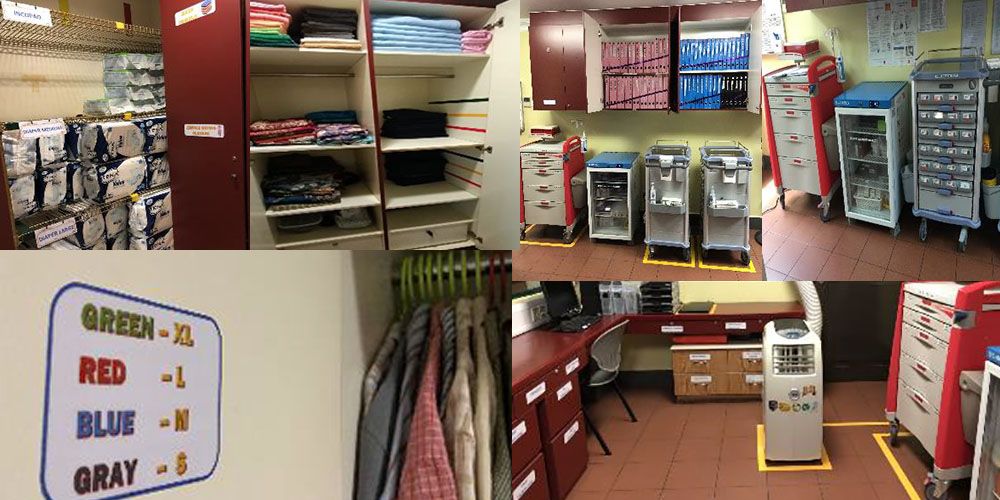
“For every minute spent organising, an hour is earned.”
- SWAMI’s Nursing Team
Witnessing the success of 6S 6S, the nursing team at SWAMI decided to implement 6S to other areas within their space. As such, they successfully organised and categorised areas for medical supplies, supplement storage and files archive, all of which made the team more efficient.
Likewise for WMCS, the nurses have successfully improved their self assessment score in two of their storage rooms from 13% to 88% after implementing what they have learnt from the 6S workshop. Having organised, sorted and cleaned the storage area, the team at WMCS has a clearer understanding and overview of the standards that need to be maintained to upkeep the 6S system integration in the organisation.
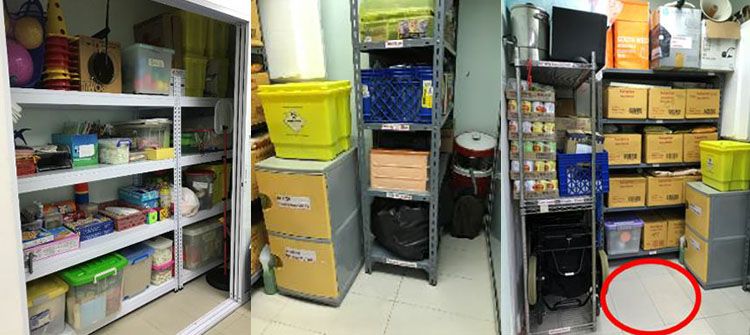
A Helping Hand for Process Improvement
AIC facilitates collaborative workshops focused on clinical and process improvement. We support quality and productivity improvement efforts of Community Care providers by guiding them as they embark on their improvement journey. If your Community Care organisation is keen on similar productivity and quality improvement workshops, you may click on the link to learn more about AIC’s Process Improvement Collaborative Workshops.
More About SWAMI and WMCS
Founded in 1989, SWAMI is an established voluntary welfare organisation that provides integrated nursing care to seniors. With specialised services like dementia care and home care, SWAMI provides support and tries their best to meet the individual needs of each resident, placing their residents at the heart of everything they do to ensure that their residents receive the best care possible.
Since 2009, WMCS, a non-profit, voluntary welfare organisation, has provided compassionate and holistic care for the ageing community in Singapore. They started an elderly day care and senior activities centre, which led to a collaborative effort with the Presbyterian Community Services to establish the Presbyterian Care Singapore at Potong Pasir in 2013 to better serve seniors.
